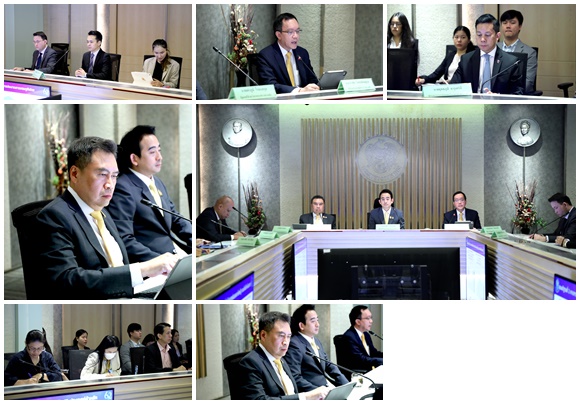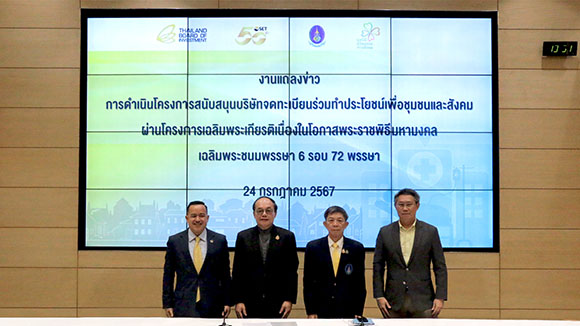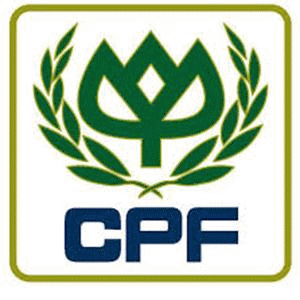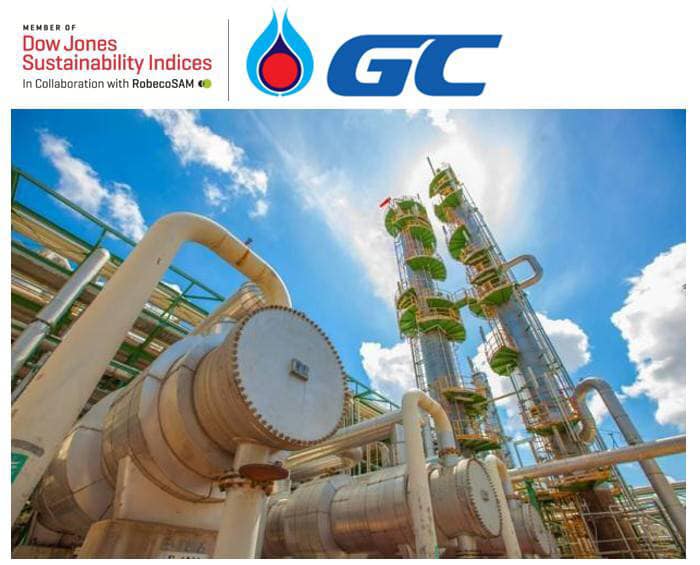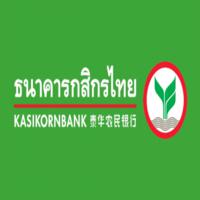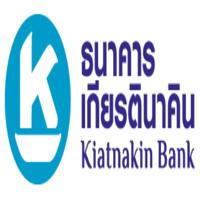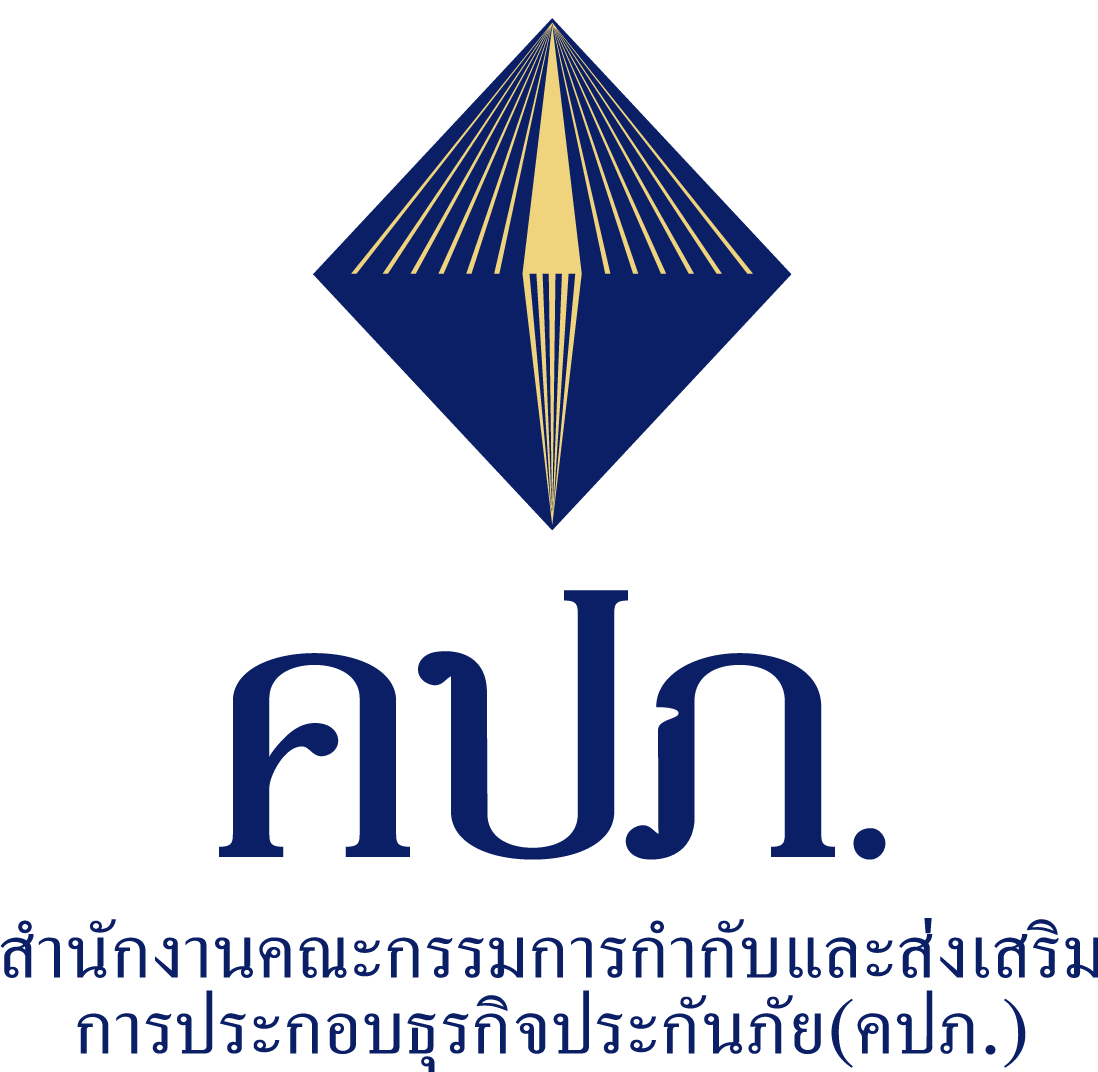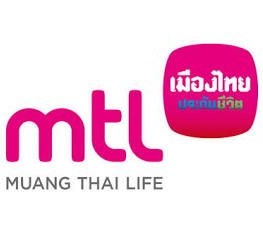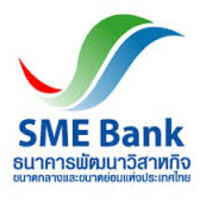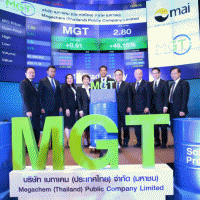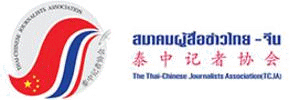- Details
- Category: สำนักนายกฯ
- Published: Sunday, 26 December 2021 22:13
- Hits: 12407
 Fitch Affirms Thailand at 'BBB+'; Outlook Stable
Fitch Affirms Thailand at 'BBB+'; Outlook Stable
Fitch Ratings - Hong Kong - 20 Dec 2021: Fitch Ratings has affirmed Thailand's Long-Term Foreign-Currency Issuer Default Rating (IDR) at 'BBB+' with a Stable Outlook.
A full list of rating actions is at the end of this rating action commentary.
KEY RATING DRIVERS
Thailand's 'BBB+' rating balances its robust external finances, well-managed public finances, and a strong macroeconomic policy framework, against weaker structural features than its peer group, including lower per capita income and World Bank governance scores. Moreover, medium-term growth prospects are constrained by adverse demographic factors and potential scarring from the Covid-19 pandemic.
The affirmation and Stable Outlook reflect Fitch's assessment that risks associated with an increase in government debt as a consequence of pandemic relief measures are offset by Thailand's record of sound fiscal management and a strengthening economic recovery.
Fitch estimates that Thailand's economy will have rebounded only modestly this year, by 0.9% ('BBB' median: 4.6%). The recovery has been held back by setbacks from the outbreak of the Delta variant of Covid-19, which led to stringent lockdown measures and lacklustre private consumption. Merchandise exports have held up well thanks to strong external demand and only limited supply disruptions. The scaling up of government expenditure has helped support household and corporate balance sheets. A boost in public investment has also helped lift domestic demand in the absence of a recovery of international tourism inflows.
We project real GDP growth will accelerate to 4.5% in 2022, underpinned by accommodative fiscal and monetary policies, a continued trend of rising goods exports, and a mild recovery of inbound tourism. The government has begun a phasing out of lockdown restrictions, thanks to falling Covid-19 cases and rising vaccination rates. About 62.4% of the population has been fully vaccinated as of 15 December, in line with the government's target to reach 70% vaccine coverage by end-2021.
The reopening of Thailand's international borders in November has laid the groundwork for a gradual tourism recovery. However, we expect the resumption of international tourism to remain below pre-pandemic levels for at least a few years. Near-term recovery risks are dominated by the new Omicron variant, and subdued prospects for a return of Chinese tourists, due to China's stringent quarantine requirements for returning travellers. Tourists from mainland China accounted for 27.6% of total arrivals to Thailand in 2019.
Fitch estimates a general government deficit of 6.7% of GDP (Government Finance Statistics basis) in the fiscal year ended September 2021 (FY21) ('BBB' median: 5.3%), compared with 4.5% in FY20. The government has disbursed about THB1.27 trillion, or 85% of the approved THB1.5 trillion (about 3% of GDP per year from FY20 to FY22) emergency decrees to finance pandemic relief measures as of 15 December 2021.
We forecast the general government deficit will narrow to 4.6% of GDP in FY22 ('BBB' median: 4.2%) on a mild unwinding of Covid-19-related spending and stable revenue collection. We expect the remaining THB225.5 billion under the approved emergency borrowing decrees to be disbursed in FY22. The recent increase in the public debt ceiling from 60% to 70% allows for additional capital expenditures and recurrent spending with targeted social transfers to support the recovery.
Fitch projects gross general government debt (GGGD) will rise to 55.3% of GDP by FYE22, broadly in line with the projected current 'BBB' median of 54.0%. We believe public finance risks associated with the large increase in the GGGD/GDP ratio, of about 20pp since 2019, are mitigated by Thailand's demonstrated sound debt management strategy, as well as the fact that outstanding public debt is predominantly denominated in local currency (98.2% vs. 'BBB' current median: 66.6%) with a long average maturity of about 9 years. Our baseline forecasts suggest the GGGD/GDP ratio will stabilise by FYE24, as the economic recovery broadens and the fiscal deficit gradually narrows, though the public debt trajectory remains sensitive to growth assumptions.
We expect the Bank of Thailand (BoT) to maintain accommodative financial conditions and keep its benchmark policy rate at the current historical low of 0.5% through at least mid-2023. We believe the monetary authorities will also remain focused on providing targeted financial assistance measures, including the SME soft-loan scheme and long-term sustainable debt restructuring, to support struggling private businesses and households. Underlying inflationary pressures remain muted due to subdued domestic demand, despite the recent increase in headline inflation due to the rise in global energy prices. Fitch forecasts headline inflation to average 1.2% in 2021, before edging up to 1.4% in 2022, still at the lower end of the BoT's 1%-3% target band.
Thailand's robust external finances have remained resilient throughout the pandemic, a core buffer against potential external volatility associated with US Fed tapering and tightening. Our baseline forecasts suggest the current account will shift to a small surplus of 0.8% of GDP in 2022, from an estimated deficit of 2.0% in 2021, due to a modest rise in tourist arrivals and a gradual normalisation of freight payments. We expect the surplus will further widen to 3.5% of GDP in 2023 as the tourism recovery increasingly gains traction. Fitch projects Thailand to maintain a large net external creditor position at 42.2% of GDP in 2022 ('BBB' median: -0.2%). We anticipate foreign-currency reserves will remain high at around USD252 billion by end-2022, equivalent to 9.3 months of current external payments.
Sporadic anti-government protests have thus far had only a limited economic impact, particularly as tourism flows have already been disrupted by the pandemic. However, political tensions around the next general election due by March 2023 could add to downside risks to the ongoing recovery. Lingering political uncertainty could also weigh on Thailand's credit profile through its impact on policymaking effectiveness.
Fitch has an improving outlook on Thailand's banks. The household debt-to-GDP ratio remained elevated at 89.3% of GDP as of end-2Q21, and could constrain the recovery in private consumption, particularly for low-income households. Elevated unemployment and underemployment due to the Covid-19 pandemic weigh on household incomes and hinder their ability to service debt. Nevertheless, banks' asset-quality buffers appear adequate, and downside risks are mitigated by healthy reserve coverage and core capital. Positive trends in loan growth and non-interest revenues will drive higher profitability, despite elevated credit costs and a low-interest environment.
ESG - Governance: Thailand has an ESG Relevance Score (RS) of '5' for Political Stability and Rights, and '5[+]' for the Rule of Law, Institutional and Regulatory Quality and Control of Corruption. These scores reflect the high weight that the World Bank Governance Indicators (WBGI) have in our proprietary Sovereign Rating Model. Thailand has a medium WBGI raking at the 45th percentile, in part reflecting sound institutional capacity and regulatory quality, and established rule of law, offset by persistent political volatility.
RATING SENSITIVITIES
Factors that could, individually or collectively, lead to negative rating action/downgrade:
- Public Finances: A more significant increase in the general government debt ratio compared with our current projections, for example, due to a prolonged fiscal deterioration, or the crystallisation of contingent liabilities on the sovereign balance sheet.
- Structural Features: Heightened political disruption on a scale sufficient to impact Thailand's economic prospects.
Factors that could, individually or collectively, lead to positive rating action/upgrade:
- Macroeconomic: An improvement in medium-term growth prospects without a significant rise in household debt.
- Public Finances: Improved prospects for a decline in the general government debt to GDP ratio from post-pandemic fiscal consolidation and/or improving medium-term growth potential.
SOVEREIGN RATING MODEL (SRM) AND QUALITATIVE OVERLAY (QO)
Fitch's proprietary SRM assigns Thailand a score equivalent to a rating of 'BBB' on the Long-Term Foreign-Currency (LT FC) IDR scale.
Fitch's sovereign rating committee adjusted the output from the SRM to arrive at the final LT FC IDR by applying its QO, relative to SRM data and output, as follows:
- Macro: +1 notch, to offset the deterioration of the GDP volatility variable in the SRM, which we believe will be temporary, driven by the impact of the coronavirus shock, and would otherwise add excess volatility to the rating. Fitch expects Thailand to have the sound policymaking framework and capacity to absorb the shock without lasting effects on medium-term macroeconomic stability.
Fitch's SRM is the agency's proprietary multiple regression rating model that employs 18 variables based on three-year centred averages, including one year of forecasts, to produce a score equivalent to a LT FC IDR. Fitch's QO is a forward-looking qualitative framework designed to allow for adjustment to the SRM output to assign the final rating, reflecting factors within our criteria that are not fully quantifiable and/or not fully reflected in the SRM.
BEST/WORST CASE RATING SCENARIO
International scale credit ratings of Sovereigns, Public Finance and Infrastructure issuers have a best-case rating upgrade scenario (defined as the 99th percentile of rating transitions, measured in a positive direction) of three notches over a three-year rating horizon; and a worst-case rating downgrade scenario (defined as the 99th percentile of rating transitions, measured in a negative direction) of three notches over three years. The complete span of best- and worst-case scenario credit ratings for all rating categories ranges from 'AAA' to 'D'. Best- and worst-case scenario credit ratings are based on historical performance. For more information about the methodology used to determine sector-specific best- and worst-case scenario credit ratings, visit https://www.fitchratings.com/site/re/10111579.
REFERENCES FOR SUBSTANTIALLY MATERIAL SOURCE CITED AS KEY DRIVER OF RATING
The principal sources of information used in the analysis are described in the Applicable Criteria.
ESG CONSIDERATIONS
Thailand has an ESG Relevance Score of '5' for Political Stability and Rights as World Bank Governance Indicators have the highest weight in Fitch's SRM and are therefore highly relevant to the rating and a key rating driver with a high weight. As Thailand has a percentile rank below 50 for the respective Governance Indicator, this has a negative impact on the credit profile.
Thailand has an ESG Relevance Score of '5[+]' for Rule of Law, Institutional and Regulatory Quality and Control of Corruption as World Bank Governance Indicators have the highest weight in Fitch's SRM and are therefore highly relevant to the rating and are a key rating driver with a high weight. As Thailand has a percentile rank above 50 for the respective Governance Indicators, this has a positive impact on the credit profile.
Thailand has an ESG Relevance Score of '4' for Human Rights and Political Freedoms as the Voice and Accountability pillar of the World Bank Governance Indicators is relevant to the rating and a rating driver. As Thailand has a percentile rank below 50 for the respective Governance Indicator, this has a negative impact on the credit profile.
Thailand has an ESG Relevance Score of '4[+]' for Creditor Rights as willingness to service and repay debt is relevant to the rating and is a rating driver for Thailand, as for all sovereigns. As Thailand has track record of more than 20 years without a restructuring of public debt and this is captured in our SRM variable, this has a positive impact on the credit profile.
Except for the matters discussed above, the highest level of ESG credit relevance, if present, is a score of 3. This means ESG issues are credit-neutral or have only a minimal credit impact on the entity, either due to their nature or to the way in which they are being managed by the entity. For more information on Fitch's ESG Relevance Scores, visit www.fitchratings.com/esg.
Additional information is available on www.fitchratings.com
FITCH RATINGS ANALYSTS
George Xu
Associate Director
Primary Rating Analyst
+852 2263 9629
george.xu@fitchratings.com
Fitch (Hong Kong) Limited
19/F Man Yee Building 60-68 Des Voeux Road Central Hong Kong
Jeremy Zook
Director
Secondary Rating Analyst
+852 2263 9944
jeremy.zook@fitchratings.com
Andrew Fennell
Senior Director
Committee Chairperson
+852 2263 9925
andrew.fennell@fitchratings.com
APPLICABLE CRITERIA
Country Ceilings Criteria (pub. 01 Jul 2020)
Sovereign Rating Criteria (pub. 26 Apr 2021) (including rating assumption sensitivity)
















